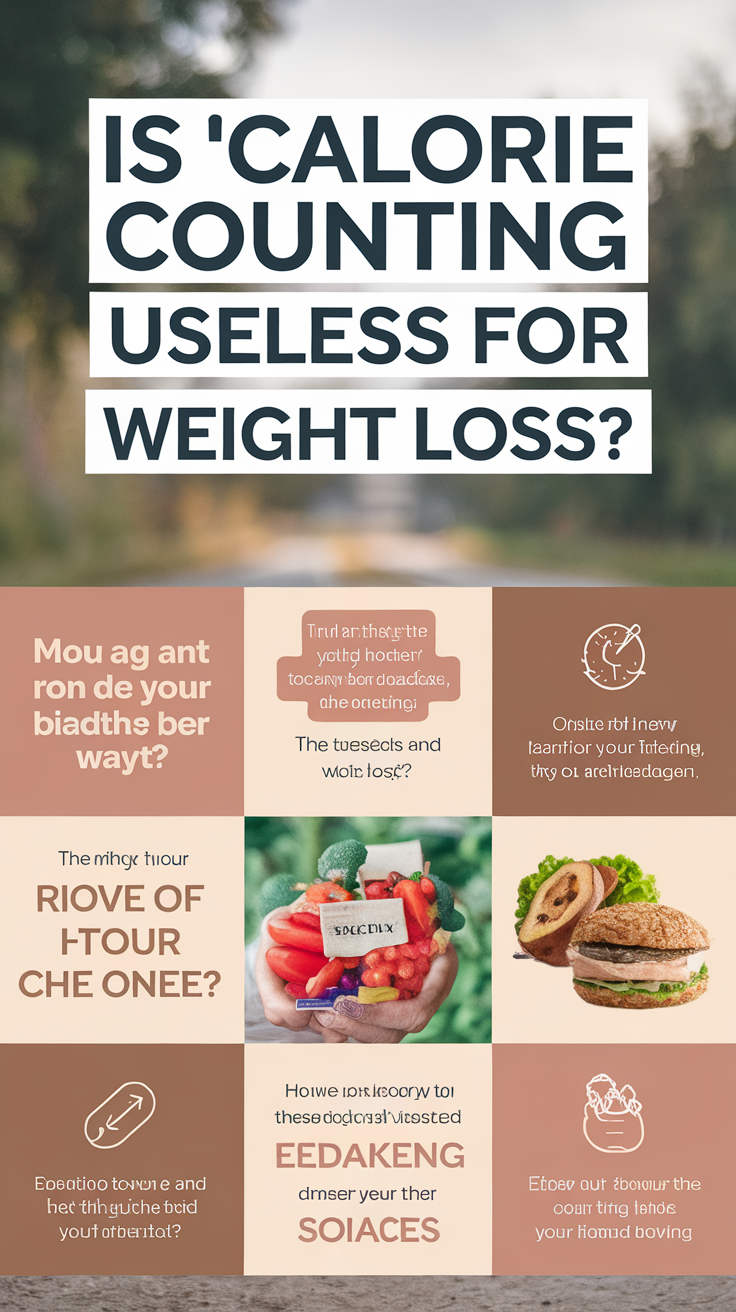Is ‘Calorie Counting’ Useless for Weight Loss.
Calorie counting isn’t useless for weight loss; it’s a valuable tool when used properly. By tracking your daily intake, you can better understand your eating habits and identify when you’re in a caloric deficit, which is key for fat loss. However, not all calories are equal, and focusing solely on numbers can be misleading. Balancing nutrient-dense foods and incorporating mindful eating can enhance your success. There’s more to explore about effective weight management strategies.
Understanding Calorie Counting: The Basics
Calorie counting is a straightforward yet powerful tool for managing your weight. It involves tracking the number of calories you consume daily, helping you understand your eating habits.
By identifying your calorie intake, you can make informed choices about portion sizes and food selections. Start by determining your daily caloric needs based on your activity level and goals.
Utilize apps or food diaries to log your meals, ensuring you’re aware of what you eat. This practice not only promotes accountability but also encourages mindfulness around food.
Mastering calorie counting enables you to create a balanced diet tailored to your lifestyle, making it easier to achieve and maintain your weight loss goals. Embrace this skill and watch your progress unfold.
The Science Behind Caloric Deficit and Weight Loss
Understanding how caloric deficit works is key to effective weight loss. When you consume fewer calories than your body burns, it initiates a process that leads to fat loss. This deficit forces your body to tap into its energy reserves, primarily stored fat, for fuel.
| Energy Source | Caloric Impact |
|---|---|
| Carbohydrates | 4 calories/gram |
| Proteins | 4 calories/gram |
| Fats | 9 calories/gram |
Common Misconceptions About Calorie Counting
While many people believe calorie counting is a straightforward method for weight loss, several misconceptions can lead to confusion and frustration.
One common belief is that all calories are equal, but the source matters; 100 calories from candy isn’t the same as 100 calories from broccoli.
Another misconception is that strict adherence to calorie limits guarantees success. In reality, quality and nutrient density are crucial for long-term health and sustainability.
Many also think counting calories is tedious, but it can be streamlined with apps and tools.
Finally, some believe that once they hit their target, they can stop counting. Weight management requires ongoing attention to both intake and lifestyle, so don’t underestimate the importance of mindful eating beyond the numbers.
Alternative Approaches to Sustainable Weight Management
Many individuals are seeking ways to manage their weight sustainably without solely relying on calorie counting. Instead, focus on cultivating a balanced relationship with food. Prioritize whole, nutrient-dense foods that nourish your body, promoting satiety and energy.
Embrace mindful eating practices—listen to your hunger cues, savor each bite, and eliminate distractions during meals. Incorporating regular physical activity tailored to your preferences enhances your overall well-being and supports weight management.
Setting realistic goals and tracking your progress can foster accountability and motivation. Additionally, consider the power of community; engaging with like-minded individuals can provide support and encouragement.






